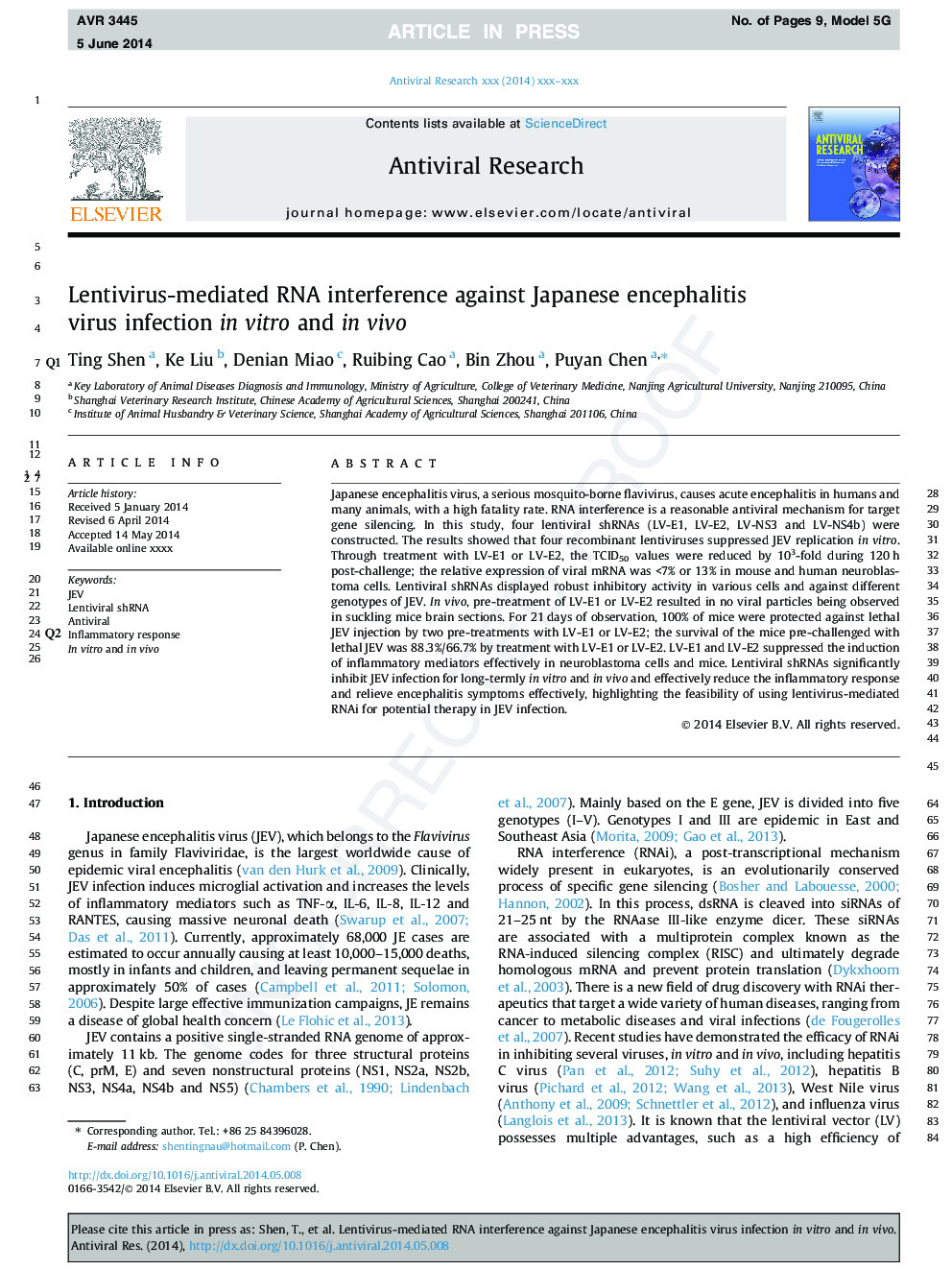| Article ID | Journal | Published Year | Pages | File Type |
|---|---|---|---|---|
| 5822254 | Antiviral Research | 2014 | 9 Pages |
Abstract
Japanese encephalitis virus, a serious mosquito-borne flavivirus, causes acute encephalitis in humans and many animals, with a high fatality rate. RNA interference is a reasonable antiviral mechanism for target gene silencing. In this study, four lentiviral shRNAs (LV-E1, LV-E2, LV-NS3 and LV-NS4b) were constructed. The results showed that four recombinant lentiviruses suppressed JEV replication in vitro. Through treatment with LV-E1 or LV-E2, the TCID50 values were reduced by 103-fold during 120Â h post-challenge; the relative expression of viral mRNA was <7% or 13% in mouse and human neuroblastoma cells. Lentiviral shRNAs displayed robust inhibitory activity in various cells and against different genotypes of JEV. In vivo, pre-treatments of LV-E1 or LV-E2 resulted in no viral particles being observed in suckling mice brain sections. For 21Â days of observation, 100% of mice were protected against lethal JEV injection by two pre-treatments with LV-E1 or LV-E2; the survival of the mice pre-challenged with lethal JEV was 88.3%/66.7% by treatment with LV-E1 or LV-E2. LV-E1 and LV-E2 suppressed the induction of inflammatory mediators effectively in neuroblastoma cells and mice. Lentiviral shRNAs significantly inhibit JEV infection for long-term in vitro and in vivo and effectively reduce the inflammatory response and relieve encephalitis symptoms, highlighting the feasibility of using lentivirus-mediated RNAi for potential therapy in JEV infection.
Related Topics
Life Sciences
Immunology and Microbiology
Virology
Authors
Ting Shen, Ke Liu, Denian Miao, Ruibing Cao, Bin Zhou, Puyan Chen,
